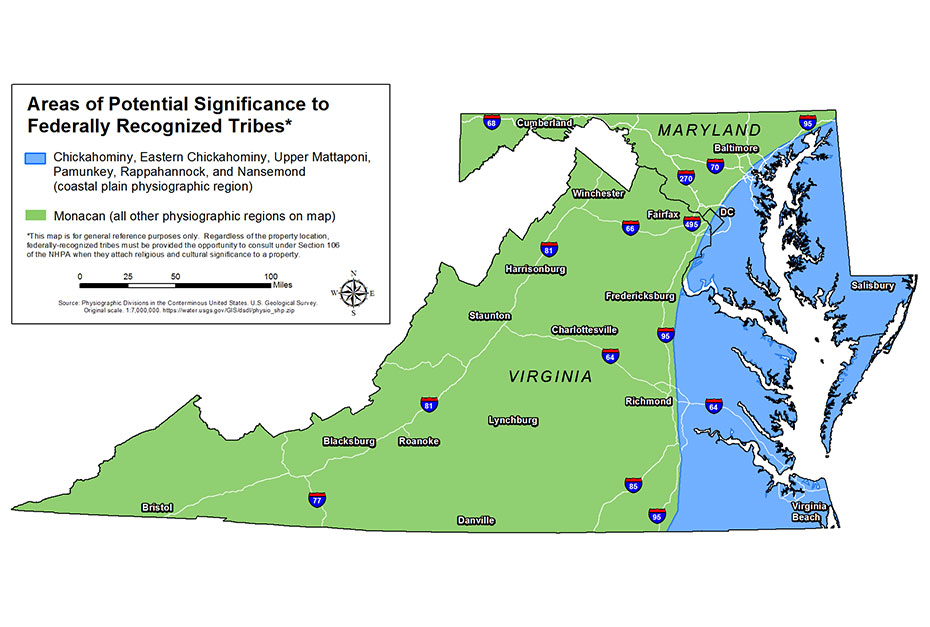Potential Permit Delays: Tribes Gain Recognition, Including Consultation Rights
Six Virginia-based tribes won a 19-year battle for federal recognition in January when H.R. 981, the Virginia Federal Recognition Act of 2017, won Congressional and Presidential approval. This historic move by the federal government could delay projects across Virginia, as well as the District of Columbia, Maryland, and beyond into other states where the tribes have potential areas of interest if the projects involve federal funding or require a federal action (e.g. wetland permitting).
The Chickahominy, Eastern Chickahominy, Upper Mattaponi, Rappahannock, Monacan, and Nansemond now join the Pamunkey in Virginia’s list of federally-recognized tribes. Federal law requires tribal consultation under Section 106 of the National Historic Preservation Act of 1966, as amended, when development projects that involve Clean Water Act permitting or other federal licensing, permitting, or funding, could impact tribal cultural resources or ancestral landscapes. There are other federally recognized tribes with interests in Virginia, Maryland, neighboring states, and the District of Columbia, however they rarely consult on Clean Water Act permitting projects in the region.
What does this mean for builders, developers, and public works officials?
As part of the Section 106 consultation process, the U.S. Army Corps of Engineers coordinates with the State Historic Preservation Officer to determine if the proposed project will result in adverse effects to archeological sites, architectural resources, or historic districts eligible for listing in the National Register of Historic Places. If there is a determination of adverse effect for a project, the appropriate federally recognized tribe or tribes, must be given the opportunity to review and consult on the project, which could lead to delays in the wetland permit approval process.

